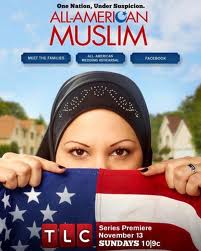 This is a guest post from Jewish activist Anya Cordell, recipient of the 2010 Spirit of Anne Frank award.
This is a guest post from Jewish activist Anya Cordell, recipient of the 2010 Spirit of Anne Frank award.
Is there a way for the storm swirling around Lowes (for pulling advertising from TLC’s “All American Muslims”) to calm, and for Lowes and Muslims and others to all be ‘winners’? I believe there is.
This idea hatched as I thought about how the Muslims I know are so gracious, generous, hospitable, and community-minded, that a boycott seems not to be the exact fit. Though a boycott is justified and perfectly understandable, I would instead suggest a “shopcott,” with Muslims and those who have allied in concern over this issue to actually shop at Lowes, en masse. No one likes to reward bad behavior; and at a time of financial stress, shopping at a store that has spurned you is odd, I’ll admit. But in the quest for real healing and transformation, here’s a description of my idea and why it makes sense:
Each shopper, polite and dignified, will carry a sign commenting on what Lowes did and how it adds progressively to this chilling climate we are in, adding grease to a very slippery slope leading to increasing fear-mongering, xenophobia and Islamophobia.
The signs should be medium-sized and worn on clothing or strings, as opposed to big signs on sticks. Non-Muslim women might wear headscarves in solidarity. People should go in groups — not alone — preferably enormous groups. The idea is to be as gracious, polite and dignified as possible, exemplifying Muslims as an integral part of the fabric of our society and the shopping public, which Lowes spurned so terribly in their action.
Shoppers could buy just a single light bulb or a plant, or whatever they choose. In this way, we’d still be buying, en masse, even though it will add up to little in Lowes coffers while still get the point across. There’s great symbolism in buying light bulbs (as in gaining light and clarity); picture shoppers walking through the store holding our single light bulbs in front of us. (Great photo-opps!) And the plants … what a beautiful (media-worthy!) image of masses of Muslims and allies walking out, each with a single plant, which grows and evolves, like we all need to do!
At peak holiday-shopping time, a lot of people buying one small item, standing in the checkout lines will have an impact, though I’m not suggesting the intention of gumming up the works, and annoying all other shoppers in the week before Christmas (though we could, as Lowes now knows it). If a Muslim or an ally wants to spend hundreds — buying masses of remodeling supplies — that would speak volumes about the graciousness and forgiving nature that could help to turn and evolve perceptions.
Here are some of the reasons for this strategy:
Will companies in the future sponsor a new show involving Muslims after watching this play out? Will they merely avoid the issue by not sponsoring in the first place? It’s important for this to result in a win-win, not a win-lose. In a conflict, if it’s not to the death, there has to be a way out.
It helps Lowes to want to find a graceful way out of this issue, maybe even turning Lowes into an ally and getting other companies to think deeply going forward, not merely avoid anything Muslim altogether.
It helps perceptions evolve, dispelling stereotypes, changing hearts and minds (the real, deep, and truly important goal).
It takes advantage of this teachable moment, modeling not by punishing but by demonstrating something beyond a vengeful cycle (pretty ‘Christian,’ actually).
It’s unexpected in the way that a parent who might discipline a child who has done something truly wrong instead surprises the child with deep reason and a really caring, thought-out response that is more transformational to the child than being punished in the way the child expected or even deserved.
It exposes other shoppers to the issue, in person, where some conversations could help transform views.
It expresses consciousness over not being adversaries, with shoppers, shareholders, employees and boycotters polarized against one another. (I see there is now a counter-petition, and people speaking of “trench warfare” on this issue; we don’t need more warfare, we need healing.)
It shows concern for Lowes’ shareholders and employees who have nothing to do with the corporate decision, but who will suffer (including Muslim employees), and shows concern for the economic climate that impacts the entire community.
It will surprise the media, and everyone … making it even more media-worthy and blog-worthy, etc. (Can you imagine some of the stories people would have — other customers and employees who might have their minds opened?)
It may even be a historic sort of approach to such an issue.
It will bypass the polarizing, shouting matches that can happen at rallies and boycotts, with the two ‘sides’ opposed and angry. (There are folks who have applauded Lowes, saying that Lowes pulling its ads has now converted them into Lowes shoppers.)
It demonstrates, physically, by Muslims and allies being IN the stores, what an integral part of the community we are; how many we are. Lowes and everyone will know that we could have been outside, trying to keep others from going in (which could have antagonized other shoppers, making them uncomfortable if they did go in). This strategy can instead create allies.
This idea is less likely to have unexpected negative consequences for the Muslim community, who definitely need people on their side.
In many places there are no local hardware stores and Muslims and allies will still want/or need to shop there. If we never close ourselves out of the store (calling for a firm boycott) we won’t have to figure out how to find a way back in.
This is not like the Montgomery bus boycott, where ‘winning’ meant gaining the right to sit anywhere on the bus. Here, the goal is more diffuse and not easily defined as a demand. Demanding a heartfelt apology will not in itself create the changed atmosphere we desire from other companies and the public arena. This is more delicate. As in any relationship, creating a stand-off is not ultimately useful. Wouldn’t we rather that Lowes grows in perception and understanding and will want to engage with the community, sponsor more shows, etc. and the relationship will have evolved positively for both sides, and will impress and transform those watching from the sidelines?
And, people do not heal prejudices via lectures, admonishments, etc., but through relationships. Ultimately, those who malign Muslims will have to meet them to evolve. We should ask whether our strategies lead to building such relationships.
Jon Stewart has already covered this issue. Maybe he and/or Stephen Colbert will cover this development, too, saying funny but sweet things about how unbelievably nice Muslims are — the antithesis of the stereotype (because it is true). I can see it happening.
One more thing: There are lots of Lowes stores and lots of people with differing perspectives. There need not be an either/or strategy, boycott/or/non-boycott. Different people can do different things over a period of days. But I do hope that this idea will be widely discussed and considered. I think it has much to recommend it over a boycott as a more graceful, elegant, nuanced and hopefully effective and healing way to respond to a negative, ill-conceived choice on Lowes part, as well as a way to respond to those who encouraged Lowes to do it in the first place and the watching public.
(By the way, for those who have wished for a Muslim version of the Cosby show, the entire Canadian series, “Little Mosque on the Prairie” is on Youtube. I recommend it!)
Finally, while everyone’s attention is on this, it’s extremely important not to lose focus on the timing of the National Defense Authorization Act, which would allow for indefinite detention of Americans by the military. NDAA could have a much longer, deeper impact than the Lowes matter. We need to be focused on both!
(Please read the comment I made when I signed the petition, and my further thoughts, as the recipient of the 2010 Spirit of Anne Frank Award, about what Anne Frank might think about how each fear-mongering voice influences the next.)
Anya Cordell is a Jewish speaker, writer and activist. Recipient of the 2010 Spirit of Anne Frank Award and founder of The Campaign for Collateral Compassion to raise awareness of the post 9/11 backlash against Muslims, Sikhs, Hindus and others. She is also author of RACE: An OPEN & SHUT Case, which unravels traditional presumptions of what we call “race”, named among the “books to change your life” by N’Digo Magazine, and the author of the acclaimed piece, “Where the Anti-Muslim Path Leads.”











